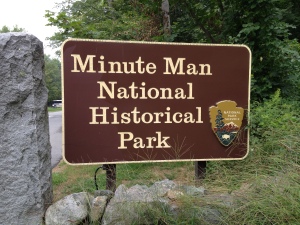
In the spirit of our approaching Thanksgiving holiday, I’m complying with several recent requests for more “International Swear Words to Love and Use” entries. I’ve decided to donate a colonial version for posterity.
In preschool and kindergarten, we’re precociously taught to admire our earliest settlers from England. After all, they did allegedly bond with America’s native residents long enough to establish a gathering that would become a national holiday. (Pay no attention to the French and Indian War…)
While this blog post doesn’t directly focus on Thanksgiving, it does question the language used when colonial citizens gave thanks in a more obscene way. But what do we actually know about the fine swear words (and other insults) bantered about on our shores during the 17th and 18th centuries?
Amazingly enough, a man by the name of Francis Grose (he was an English antiquary and lexicographer) wrote a book in 1785 called A Classical Dictionary of the Vulgar Tongue. Mr. Grose has saved me a lot of Googling time on the Internets by penning such a masterful lexicon. (My additional thanks to Mr. Gutenberg!)
Please be advised that during colonial times, the word “vulgar” meant something that was common or ordinary rather than crude, rude, and offensive. Regardless, this dictionary is as close as I’ll ever get to British and American swear words of the 1600s and 1700s.
Prepare yourself for some linguistic lessons not available by perusing Merriam-Webster’s Collegiate Dictionary, the American Heritage Dictionary, or even the revered Oxford English Dictionary.
Mr. Grose’s Dictionary Was Not Particularly Kind to Colonial-Era Women…: Perhaps I’m being oversensitive, but many of The Vulgar Tongue‘s entries referencing “the ladies” overwhelmingly favor promiscuous and old women.
I suppose the Pilgrims’ and Puritans’ strict behavioral guidelines were too demanding for certain women. Thus, a particular type of lady segued from being a Goody (Goodwife) to being an Abbess. (Which, by the way, is the very first entry in the dictionary–“a bawd, the mistress of a brothel”).
Here are some of the more bawdy highlights:
- Ape Leader (“an old maid”–ask me why!)
- A Biter (“a lascivious, rampant wench”)
- Blower (“a mistress or whore”)
- Covent Garden Nun (“a prostitute”)
- Dirty Puzzle (“a nasty slut”–oh my goodness!)
- Punk (“a little whore, also a soldier’s trull [companion]”– do you feel lucky, punk?)
- Quicunque Vult (“a forward girl, ready to oblige every man that shall ask her”–try a French pronunciation: key-kunk vult…)
- Tabby, Thornback (“an old maid”–being compared to a cat and a prickly thorn, ouch!)
- Trot (“decrepit old woman”)
- Xantippe (“a shrew or scolding wife”–in Xanadu did Kubla Khan a stately Xantippe marry…)
…Although Colonial-Era Men Didn’t Fare Much Better: Mr. Grose’s dictionary offers a lovely springboard for cutting down 21st-century men with 18th-century contempt. Based on some of the fine words and phrases I’m about to share with you, you’d never know that The Vulgar Tongue references actual human beings.
There are way too many side-splitting examples for me to share. Here are those from the first half of the alphabet that caught my fancy:
- Addle Pate (“an inconsiderate foolish fellow”)
- Batchelor’s Son (“a bastard”)
- Beard Splitter (“a man much given to wenching”–a ladies’ man!)
- Carrion Hunter (“an undertaker”)
- Dark Cully (“a married man that keeps a mistress, whom he visits only at night, for fear of discovery”)
- Ferret (“a tradesman that sells goods to young unthrifty heirs, at excessive rates, and then continually duns them for the debt”)
- Flogging Cully (“one who hires girls to flog him on the posteriors, in order to procure an erection”–this one should be renamed “Kinky Colonial Coots”…)
- Hanktelo (“a silly fellow”)
- Jackanapes (“an ape, a pert ugly little fellow”)
Some Age-Old Practices Are Too Lascivious to Be Explained: As I scanned Mr. Grose’s dictionary for the most unusual entries, there were a few that left me guessing as to their definitions.
Apparently, some words and phrases were too d@mn lascivious for the cobblestones of King George III’s England and America’s thirteen (and growing) colonies. No one will know just how blasphemous you are when you drop these gems into a conversation:
To Bagpipe (“a lascivious practice too indecent for explanation”–use your imagination and leave it as a comment!)
Larking (“a lascivious process that will not bear explanation”–for the curious, here is a pictorial explanation of the lark’s mating habits…)
People Didn’t Have Sex in the 1700s–It Was a Beastly Act: I suppose copulation wasn’t so sexy during colonial times, given the lack of silk teddies and fishnet stockings. Even with all my creative gifts, I couldn’t come up with oddities such as these:
Beast With Two Backs (“a man and woman in the act of copulation”–if you didn’t know better, you might think this phrase refers to a colonial-era traveling sideshow…)
Clicket (“copulation of foxes, and thence…for that of men and women: the cull [man] and the mort [woman] are at clicket in the dyke [ditch]”)
Rutting (“copulating; rutting time, the season when deer go to rut”)
Bamboozle Your Clients and Friends with These Antiquated Expressions: Wordplay in any century is always an entertaining exercise. Our colonial forefathers (and foremothers) were no different from us in their everyday amusements. Um, except that their verbal (and not-so-silent) dog whistles are so off-kilter, they should sound comical to your 21st-century ears.
Let me know the results of your experimentation with these tempting pastilles:
- Babes in the Wood (“rogues/thieves in the stocks or pillory”)
- Barking Irons (“pistols, guns”)
- Bone Box (“mouth”)
- Cackling Farts (“eggs”)
- Chirping Merry (“exhilarated with liquor”)
- Dog’s Soup (“rain water”)
- Rabbit Catcher (“midwife”)
- Shoot the Cat (“to vomit, from excess of liquor, called also catting”)
- Slush Bucket (“a foul feeder, one that eats much greasy food”)
Ask Your Local Bartender for One of These: Nowadays, consuming alcohol has reached Olympic-like competitive heights. Bartenders have transformed into mixologists. The ingredients and equipment they use to mastermind that frothy cocktail you gulp down are intricate enough to require an organizational chart.
What’s a humble barkeep to do? The solution, of course, is to go retro–all the way back to 1785! When next you go carousing with your amigos, order one of these colonial thirst-quenchers:
- Bene Bowse (“good beer, or other strong liquor”)
- Bingo (“brandy or other spirituous liquor’)
- Black Strap (“bene carlo wine, also port”)
- Bristol Milk (“a Spanish wine called sherry, much drank at that place, particularly in the morning”)
- Calibogus (“rum and spruce beer, an American beverage”)
- Cool Nantz (“brandy”)
- Doctor (“milk and water, with a little rum, and some nutmeg”)
- Flip (“small beer, brandy and sugar”)
- Freeze (“a thin small hard cyder”)
- Fuddle (“drink, this is rum fuddle, this is excellent tipple, or drink”)
- Hearts Ease (“…also one of the names for gin”)
- Huckle My Butt (“beer, egg and brandy, made hot”–my personal favorite!)
- Pharoah (“strong malt liquor”–yes, that’s the actual spelling in Mr. Grose’s dictionary–no wonder Tutankhamun died so young…)
- Stewed Quaker (“burned rum with a piece of butter, an American remedy for a cold”)
(I suspect the word booze originates from colonial times. In The Vulgar Tongue, the entry for Boose, or Bouse is defined as “drinks.”)
Did you have as much fun reading this edition of “International Swear Words to Love and Use” as I had stitching it together? Are you interested in seeing a sequel to this blog post, or would you prefer I move on and embarrass another country or group of people?
I am no Fussock, but I am definitely a Laced Mutton. (However, I am not Mutton Headed). Please leave a comment below or advise me of your thoughts via any of my social-media accounts. A happy Thanksgiving to you all!
Lori Shapiro is the owner of By All Writes LLC, a business-to-business (B2B) writing, editing, and research company in Marlton, New Jersey. She revels in shielding her clients from the pain of writing their own print and web marketing or educational copy. Please call Lori Shapiro at 856-810-9764 or email By All Writes LLC at lori@byallwrites.biz for a no-obligation project quote today!










Quite the collection, Lori. I can’t believe some of these things even exist, much less even call for a nickname (Flogging Cully, for example.)
Hi Greg,
Scrolling through “The Vulgar Tongue” was quite the revelation for my 21st-century self. I can’t imagine being a colonial-era harlot (too many variations of that profession), that’s for sure…
Thanks for stopping by!
Regards,
Lori